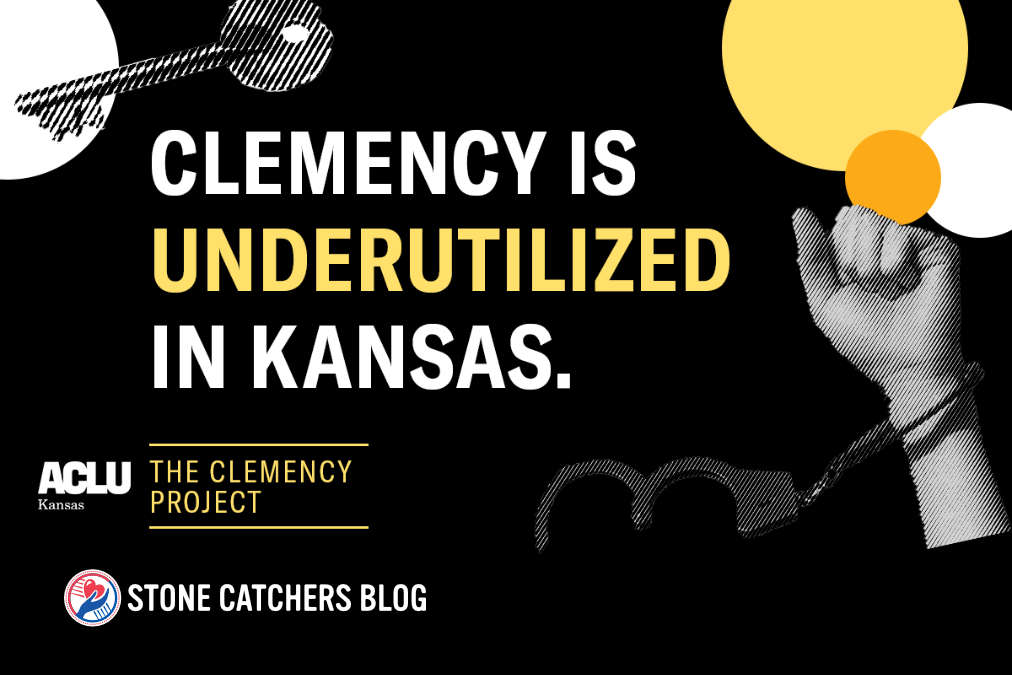In November, not long after 52-year-old Shane Haynes arrived at the Winfield Correctional Facility, he began experiencing headaches and numbness on his left side. He was taken to the Winfield Hospital where staff found a blood clot on the right side of his brain.
Shane, incarcerated for a nonviolent drug offense, did not immediately receive a necessary injection to dissolve the clot, and although his condition had not significantly improved, he was moved back to the prison where he then suffered a stroke.
Shane is scheduled for release in October of 2024, but needs to be released now to get the critical, rehabilitative care he needs and to avoid any permanent stroke damage.
Prison officials returned Shane to the hospital where he received two weeks of daily rehabilitative care, but was then transferred to the El Dorado Correctional Facility. They already have once denied him functional incapacitation release.
He has not been receiving rehabilitation, which is significant because the first 3 months following a stroke are the most crucial for rehabilitation and for protection against development of any new medical problems, such as pneumonia, injuries, or other clots.
But Shane made a great, early release candidate before his medical crisis.
He served as head cook, was active in church, mentored younger inmates, and refurbished bikes that were gifted to children.
If released, Shane plans to live with his sister and her family in Oklahoma. There, he’d have access to an Oxford House, where he could maintain sobriety.
But he’s now experiencing left-side paralysis, slurred speech and cognitive deficits. The longer he remains incarcerated, the less likely it will be that he can recover the use of his left side and be able to work and support himself.
Why should the state continue to incarcerate someone so thoroughly incapacitated?
Date
Monday, May 10, 2021 - 10:15am
Featured image
Show featured image
Hide banner image
Override default banner image
Related issues
Criminal Legal Reform
Show related content
Pinned related content
The Clemency Project: "He would have been released by now."
Petition of the Week: May 24-28
The Clemency Project: Stomach, and now, liposarcoma cancer
Tweet Text
[node:title]
Type
Menu parent dynamic listing
Show PDF in viewer on page
Style
Standard with sidebar
Show list numbers
Ronnie Loggins
Ronnie Loggins has liposarcoma cancer. The tumor, located on his inner thigh, likely has grown beyond what is operable. Radiation treatments were unsuccessful and caused other health complications. The 39-year-old retired military veteran, is a stomach cancer survivor also suffering from bleeding ulcers.
Ronnie resides in Lansing’s minimum security unit, and despite his illnesses with the accompanying pain and fatigue, he has thrown himself into Kansas Department of Corrections work programs, has a job lined up for when he is released, and has ample family support to make a successful transition.
Sentenced in 2015, set for release in 2023, and battling cancer and those other ailments, Ronnie wonders what the KDOC has to gain from his continued incarceration, particularly as COVID-19 rages in congregate spaces like Lansing (800 residents and 100 staffers there have tested positive).
Loggins, who once owned his owned a concrete company, said he has worked hard to prepare himself for release.
“I have gained valuable experience working a maintenance job and have even poured and finished some concrete jobs,” he said in his clemency application. “In early Fall 2019, I got a private industry job at Lacrosse Furniture…. This clearance to work at the facility’s private industry job shows the trust the Kansas Department of Corrections already has in me to work in the community.”
If released, he will return to Geary County and live with his fiancée and five children.
His six years served in the U.S. Army grants him medical care through the VA Hospital system and the KU Medical Center also has offered to continue to treat him at no cost following his release.
Given his ailments, he may not have much time left.
“I’m humbly asking the Governor to grant me clemency so that I can safely return to the community and begin the next chapter of my life.
Date
Monday, April 12, 2021 - 8:00am
Featured image
Show featured image
Hide banner image
Override default banner image
Related issues
Criminal Legal Reform
Show related content
Pinned related content
The Clemency Project: "His continued incarceration raises more questions than his imprisonment ever answered."
The Clemency Project: “My family is desperate for me to receive the care I need…”
Petition of the Week: January 25th-29th
Tweet Text
[node:title]
Type
Menu parent dynamic listing
Show PDF in viewer on page
Style
Standard with sidebar
Show list numbers
Ronald Pursley
Ronald Pursley, 63, is not only a heart attack survivor, but he has serious, lingering cardiovascular issues including congestive heart failure and hypertension. Ronald also lost sight in his right eye in March of last year and also battles a host of other painful, urinary tract issues. His serious conditions generate great pain daily as well as deepen his chronic fatigue.
He has nearly finished his sentence — he is scheduled for release from the Lansing Correctional Facility in October.
Ronald has been screened for the work release program at the Winfield Correctional Facility, a demonstration he says, of the Kansas Department of Correction’s confidence in him. He has worked in the kitchen at Lansing and participated in the Brothers in Blue and men’s choir programs.
Ronald thinks of his health, his work release and facility volunteer work, and his 2016, non-violent drug crime, and he considers himself the perfect, early release candidate.
If released, Ronald said in his clemency application that he also would “like to finish my Associate’s Degree by taking online college classes. I am eager to reenter society so I can support my family and be present for my children’s and grandchildren’s milestones.”
“I am eager to reenter society so I can support my family…”
He will rely on family support. His multiple and serious medical conditions require the kind of specialized medical attention that are simply unavailable at Lansing. Despite his worsening condition, for example, he has not seen a cardiologist. He also has an umbilical hernia, bladder and testicular pain, and MRSA.
If released, Ronald plans to live with his daughter in Kansas City, MO., where his eight children and two sisters also live.
His continued incarceration raises more questions than his imprisonment ever answered.
Our prison system tacitly withholds care for this very sick person who likely should not have been incarcerated for his non-violent drug offense anyway.
If Ronald isn’t a candidate for early release, who would be?
Date
Friday, April 9, 2021 - 4:00pm
Featured image
Show featured image
Hide banner image
Override default banner image
Related issues
Criminal Legal Reform
Show related content
Pinned related content
The Clemency Project: “My family is desperate for me to receive the care I need…”
Petition of the Week: January 25th-29th
The Clemency Project: "He would have been released by now."
Tweet Text
[node:title]
Type
Menu parent dynamic listing
Show PDF in viewer on page
Style
Standard with sidebar
Show list numbers
Pages




